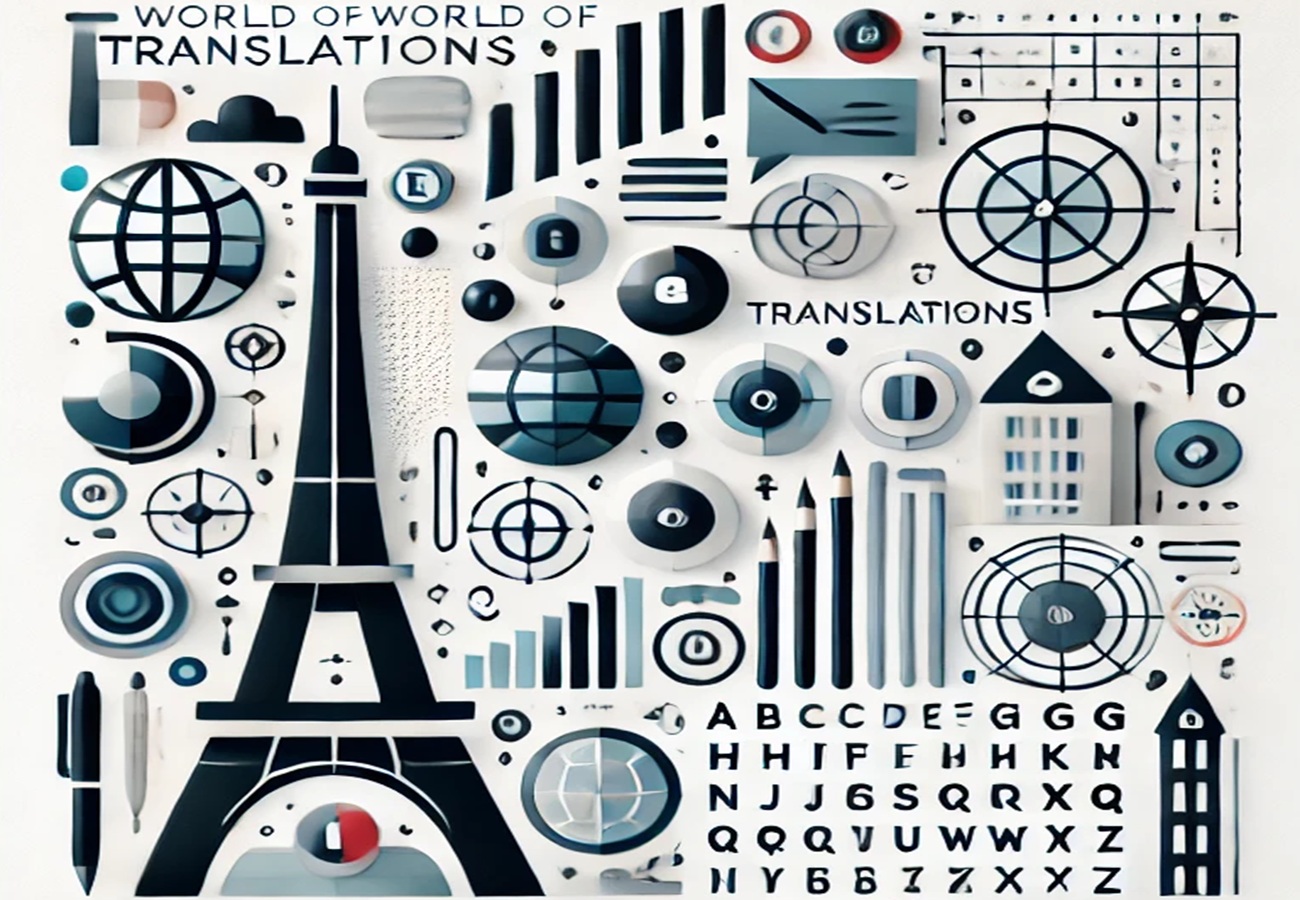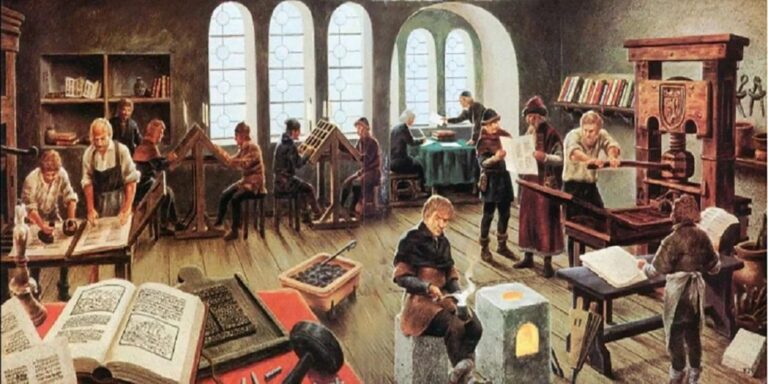The world of translations and the French language
The French language is a Romance language that evolved from the crossbreeding of the Latin language with the Galician languages. However, the French language had a very special evolution (unlike the other Latin languages).
A little about the French language
France or the Galician territory record the first testimonies made from the “Iron Age”. The present-day area of France was called “Gaul” by the Romanians. Although the term “Gaul” was representative of all the inhabitants of the area of France, the history goes back to three ethno-linguistic peoples:
– Gauls
– Aquitani
– Belgians
Each of these peoples evolved differently and interacted with different peoples over time. This element allowed the French language to evolve differently from one area to another. French is spoken by a total of some 220 million people, whether as a mother tongue, second language or foreign language, in the member, associate or observer countries of the International Organisation of La Francophonie (OIF), as well as in several other countries outside it, such as Algeria or the United States of America. There are also no precise data on those whose mother tongue is French. Their number is estimated at 110 million.
French is one of the basic languages of international communication. At the same time, if English is traditionally considered the language of mass communication, French has always been considered the privilege of the elite and the bourgeoisie. It is also considered the language of art and culture, being the most popular and in demand in secular society.
In any reference book or textbook, you can easily find and read that the French language belongs to the group of Romance languages, along with its closest neighbours: Spanish, Italian, Portuguese, as well as Romanian, Moldavian and many other languages that do not have the status of state languages (e.g. Sardinian is the language of the inhabitants of the island called Sardinia, the closest to classical Latin of all modern and modern Romance languages). These languages are called Romance because they are based on Latin, the language of ancient Rome (lat. Roma).
A few little details about the French language
We are pleased to announce that the specialists of Traductores Nativos have prepared many more interesting facts about this charming and harmonious French language just for you!
- French is recognised as an official language in 29 countries around the world, including Canada, Belgium, Switzerland, Monaco and Luxembourg. But, for example, the variation used in the Canadian province of Quebec is so different from classical French that even native French speakers sometimes cannot understand a word.
- Previously, French was directly the official language of England for 6 centuries. In 1362, the English Pleadings Act was issued, an official document obliging the British Parliament to conduct legal proceedings only in English. It is curious that this Act was also written in French. And even so, until 1423, parliamentarians continued to use exclusively a foreign language for their state (French).
- The motto and creed of Britain’s monarch, placed on Britain’s coat of arms, is also written in French and sounds like “Dieu et mon droit” (“God and my right”).
- The first and oldest monument of the French language is the Oath of Strasbourg. This was the name of the treaty concluded between the West Frankish king Charles II the Bald and his brother, the East Frankish king Louis II of Germany, signed in 842. The main aim of the treaty was unity for a common struggle against his third brother, Lotarius.
- The most interesting literary work from the point of view of French language learning is the novel “La disparition” by Georges Perec, which was published in 1969. Its unique enthusiasm is that none of the words used in the novel contain the letter e, the most used letter of the French alphabet. And even when translating the book into other European languages, this letter was not used either.
- In 1968, the Francophonie, an organisation uniting the interests of the French-speaking countries of the world, was created. Its main objective is to study, glorify and disseminate the French language. But the main criterion for joining this organisation is not the degree of diffusion of French within a particular country, but the deep cultural ties with France that have developed over decades.
- The longest word in the French language is the word “anticonstitutionnellement” (“unconstitutional”): 25 characters. The longest sentence was used by Victor Hugo in Les Misérables in 1862. It consists of 823 words.
- Interestingly, the French language has one of the most complex schemes for constructing numbers. Moreover, the corresponding logic is sometimes extremely difficult to trace. So, for example, the number 70 sounds like “sixty-ten”, 80 is “four times twenty” and 90 is “four times twenty-ten”. But things are even worse in the Georgian and Danish languages and, consequently, often more difficult.
- The French word “assiette” has a double meaning. It means both “plate” and “support”. From a mistranslation has gone the only Russian word in Russian, which is actually of French origin. In addition, words like restaurant, omelette, menu, soufflé, dessert, champagne and more have French roots. Many English words are of French origin, i.e. they were taken directly from the French language.
- The French are distinguished by the most intricate and, at the same time, beautiful and surprising reaction to a person who sneezed (moreover, several times). If in most other languages, in response to sneezing, it is customary to wish only health to the person who sneezes, then the French are much more complicated with this. The response to the first sneeze is the phrase “à tes souhaits” (“may your wishes come true”) by those present. If a person sneezes repeatedly, they say “à tes amours” (“I love you”). Well, after the third sneeze, he himself replies to those around him “que les tiennes durent toujours” (“and may yours be eternal”).
- French is the traditional language of ballet. Many terms in classical dance lessons are French.
French translation demand
The translation of a text from Spanish into French is a very important service. It is one of the working languages of the UN and is spoken by many citizens around the world. French is an incredibly original, authentic and euphonious language. It sounds beautiful, but it is quite difficult to study, as it has many nuances and rules.
Due to the complexity, we can say with certainty that an independent translation of the text into French will contain errors, inaccuracies, deficiencies and some nuances. For this task, it is best to turn to professionals in this field, who can be found in our office.
If you only want to understand the general meaning of the material, you can use automatic programmes (machine translation), but this will be a set of words that often does not reflect the meaning. Therefore, this option is not at all suitable for business correspondence or the preparation of official documents.
What are the nuances of the French language?
French belongs to a variety of the Vulgar Latin language. It is spoken by many peoples of the world. It is an official language in 25 countries. The grammar is simplified compared to Latin, however, it requires a lot of care and attention to detail when compiling sentences.
Nouns are not declined for cases. Feminine and masculine are distinguished, but not by the noun, but by the special article or adjective. As we remember, they were mentioned above. Verbs are conjugated, have modes and reflexive form. It has many features that only a native speaker knows.
The cost of translation is available for each client. It depends on the characteristics of the task, the volume of the source text and the nuances of the work. To translate a text into French, it is necessary to study it thoroughly and know it well, as it is important to understand not only the meaning of individual words, but also the general essence, emotional colour and many other very important aspects.
But we assure you that the translation agency Traductores Nativos has fair and optimal prices for high quality language services. Cheap, and that’s it: cheap translations with us!
Technical documents really require the study of every detail, as any mistake can be fatal, because the instructions are attached to serious machinery or equipment. We work professionally and guarantee a competent translation of any level of complexity.
In general, we deal with French translation, both translation from French into Spanish and translation into French from Spanish. We do this for a variety of purposes, invariably quickly and with guaranteed quality.
The task of translating from French is as relevant today as ever. We can judge this by the increasing number of specific orders, including those centred on France itself, and we strive, despite the high workload, to prevent the quality of our projects from deteriorating under the pressure of ever-increasing volume. and at the same time to meet international quality standards. One of the aspects of translation is to accompany our clients with additional detailed information, if they so wish.







